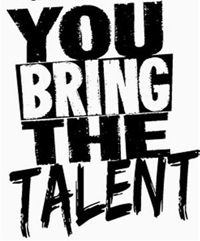
You say you want to be happy, but what have you done about it lately? I constantly hear people say things like, “I’ll be happy when I buy the house of my dreams, get that next promotion, feel better, etc.” Or, “As soon as I find the right man, go on vacation, retire, then I’ll be happy.”
That’s a bunch of crap. These and other stupid statements just like them make your happiness dependant on someone or something else. STOP it. Stop it right now. You’re giving your power to be happy away. You’re constantly in a state of chasing happiness and never ever having it. Here’s my take on happiness – quit chasing it and BE it.
Just be happy. I know, I know … the next thing out of your mouth is, “But Deborah, how can you expect me to be happy with all my financial problems, health issues, relationship upheaval?” Guess what, you can always find an excuse not to be happy. Life is full of things that will get you feeling sad, upset or ticked off. That’s life. Sometimes it sucks … get over it!
You can live in the constant state of pursuing happiness or just find something to be happy about. Sound simple? Maybe too simple, well it’s not.
Here’s the deal. The whole Law of Attraction thing is real. What you say, think, focus on and believe in becomes your reality. Who’s the boss of you anyway? Do you hear those negative thoughts floating around in your head, tearing you down and telling you, “you can’t, you’ll never, what if?” Well guess what? Whether you’re conscious of it or not, you’re listening to those thoughts and they are effectively sabotaging your efforts to get ahead.
Think of it this way. If your clothes are stinky, dirty, too small and make you feel inferior … how long would you wait until you finally did something to get rid of them and find the clothes that reflected who you are or who you aspire to be? If you stay in the ragged clothes, that’s your choice. And, you get to live with the consequences that come with looking like a bum and feeling small and restricted.
It’s the same with your self-defining negative thoughts. You must become restfully aware of these thoughts. You can shred the old and in with the new. Tell the old thoughts to “shut up so you can suit up” for success, growth and happiness. Recognize what’s true and get rid of the rest.
I often hear the same put-downs from my highly intelligent, successful and amazing clients, “I’m not smart enough, I’m not good enough, I’m not worthy of the success I’ve achieved or I feel guilty about my wealth.”
It’s time to make a choice. Stay stuck in the “oh poor me, my life is so bad, I’ll never have what they have” way of thinking (and guess what … you’re right)! Or, find something, anything to be happy about and build on it.
Once you become aware of and identify your stinky, smelly, small thoughts you can upgrade them … just like picking new clothes that better suit you.
It may sound a bit absurd, but you’ve gotta start somewhere. Build the muscle, the habit, the foundation. How would you walk, talk, look, feel, act and dress if you were happy. Be that!
Did you know your logical mind, when teamed up with your creative mind, can accelerate your innovation and success? It’s true, your mind and body do not know the difference between what’s imagined and what is literally experienced. When you visualize the person you aspire to be or the promotion, or whatever it is you crave, you begin to visually rehearse the steps to your success.
So, change your thoughts. A feeling of happiness brings more things to be happy about into your life.
Deborah Dubree is a professional coach, speaker, mentor and founder of ClearEdge a resource for high achievers who want to reach incredible goals – then see how much further they can go. She worked her way up from receptionist to owner of a multi-million-dollar company and can show you how to do the same in your business. If you’re ready to step out and be number
one in your field, sign up to get her free proven success tips today at http://deborahdubree.com/blog
Category: Success Attitude

Article Contributed by Gary Jordan
Have you noticed how so much of the feedback we get about ourselves in life is negative?
Think back to school progress reports. Now, reflect on your job performance evaluations. How often did these assessments focus on what you were doing well, as opposed to where you needed to improve? If your experience is typical, feedback about your need for improvement far outweighed the feedback about what you did well.
This focus on deficits and where you fall short is almost a human obsession. Our attention is drawn to what we cannot do rather than what we can do; to what needs improvement rather than what can be celebrated.
Since it’s always possible to highlight something that isn’t there, the list of things to improve can be endless. But when you’re spending time working on your “weaknesses” you’re ignoring your strengths and talents and beating yourself up in the process. The result is physical, emotional and psychological exhaustion.
It’s time to work on changing your life by changing your perception and focus! Time to identify, claim and celebrate the natural gifts and talents you already have, instead of focusing on those you don’t. Finding a reason to give yourself a pat on the back can drastically impact your emotional well-being for the better. Trust me – it isn’t hard to do.
You have abilities for which you have innate potential – some of which you may already be aware, and some that are just waiting to be discovered and used.
These skills come easily to you because they reflect aspects of who you are, fundamentally. Sure, they may require development, but you’ll find that efforts spent on your talents are much more productive, meaningful and rewarding than struggling to improve a “weakness.” After all, teaching an eagle to fly is much easier than teaching it to swim.
Why not discover what skills you have that will help you get off the ground? Why not use the inherent gifts and abilities with which you were born? Why not live your talents? Think of the skills that others admire in you, and ones where you often receive complements. Then, look beyond that to areas that give you that nagging feeling, to gifts that are just begging to be utilized and enjoyed.
Getting started is easy. Take 10 minutes and make a list of activities (from any time in your life) that you wish you could do again or more often. Choose one activity from the list and make a plan to do it sometime in the next seven days. (If it’s something that requires extra preparation, do it within 30 days.)
After you have done it, reflect on the experience and ask yourself the following questions:
* What aspects of the activity were enjoyable?
* What talents or skills were engaged while doing the activity?
* How could you do more of this activity?
* What would you have to give up in order to spend more time on this activity?
These are important keys to living your talents and changing your outlook on life. When you choose to focus on and nurture your innate skills and abilities you begin to see yourself in a more positive light.
About the Author
With a PhD and MA in clinical psychology, Gary Jordan is a partner at Vega Behavioral Consulting, Ltd. Gary is the visionary behind the Vega Role Facilities Theory, a revolutionary psychological assessment system that teaches people how to unleash their deepest potentials for success. For free information on how to succeed as an entrepreneur or coach, create a thriving business and build your bottom line doing more of what you love, visit www.VRFT.com
 Article Contributed by Lynda-Ross Vega
Article Contributed by Lynda-Ross Vega
Most of us have undeveloped talents that lie hidden inside us until they’re recognized and acted upon. Each of our talents is an opportunity waiting to happen.
Perhaps our natural talents and gifts weren’t recognized or appreciated when we were young. When that happens we tend to ignore or stifle them in order to avoid criticism, or we minimize ourselves by thinking, “Well, if I can do it, everyone else must be able to as well.”
The terrific insight about these internal opportunities is that, unlike their external counterparts, they can never be lost. But they can be missed unless you make the effort to discover them and then jump in and turn them into active talents.
Opportunities such as these are like muscles you have but never exercise. They function, often poorly and without great results at first. The good news is that like unused muscles, these opportunities can be consciously exercised and strengthened. The opportunity transforms into a talent!
Many people are surprised when they discover internal opportunities they never knew they had. Others admit sheepishly that they were aware of the skill, but didn’t think that it was anything “special.”
Overlooked opportunities can rob you of your full life’s potential and keep your natural talents from shining forth. If you want to do more of what you do best you must use all of your talents to their fullest.
Turning your opportunities into talents is an important step. Take action, do something, try something, get inspired!
Here’s one way to start: Brainstorm a list of at least 7-10 things you’ve always wanted to try. Some items on your list might be painting, playing the piano, learning a new language, whatever. Don’t censor yourself or worry about looking foolish. No one else has to see your list. From that list, choose one activity and pursue it in whatever way you can for the next 30 days. Do something you loved as a child. Try out a talent that you’ve always admired in others. Try something you imagine being terrible at. Do it even if it scares you.
The goal is to find something that will give you clues as to what it is that makes you happy. Discovering a hidden talent might be the catalyst that inspires a career change or presents a new business opportunity. Others say feeding a hidden talent gave them a boost in confidence to try something new, go after something they wanted or fulfill a life-long dream.
Finding our talents also helps us uncover those characteristics were we do not shine – those that make us unhappy and leave us feeling unfulfilled. The trouble is, when you waste your natural abilities you often feel stuck doing something you hate. It’s just as important to weed those skills out.
Discovering and nurturing a new talent is an opportunity to find what you need in order to be successful in life and enjoy life more fully. When we are doing what we love, we are often performing at our best. This leads to a kind of fulfillment that allows us to live life passionately and happily.
About the Author
A partner at Vega Behavioral Consulting, Ltd., Lynda-Ross specializes in helping entrepreneurs and coaches build dynamite teams and systems that WORK. She is co-author of Vega Role Facilities Theory, a revolutionary psychological assessment system that teaches people how to unleash their deepest potentials for success. For free information on how to succeed as an entrepreneur or coach, create a thriving business and build your bottom line doing more of what you love, visit www.VRFT.com

These days, it seems like it’s becoming harder and harder to be a human being rather than a human doing. “Action” is the buzzword of the day (every day).
In an article I read recently, the author was discussing the oft-asked question, “What are you willing to do to be successful?” The answer, she wrote, (as often expected from those of us serious about obtaining life success) was, “Whatever it takes.” She challenged this answer by adding, “…as long as you still love your life.”
I would like to take her challenge even further.
First of all, let’s look at the question itself. It asks, “What you are willing to do,” not what (or who) are you willing to be, in order to be successful in life. Society places an intense focus on external achievement as a measure of success (money, recognition, status, etc.). Along with that is the push for us to constantly market ourselves, our business, our website, our blog, etc. It’s not hard to see that it becomes all too easy to lose sight of how to be rather than how to do. We all know there is surely no lack of things to do.
I would propose to you that learning how to be is equally, if not more, important than learning how to do.
It’s important to know when to stop, when enough is enough, when getting, achieving, conquering, no longer has a place on the priority list. We can all learn to recognize success in life as being comfortable within one’s skin, with the journey one has taken, and with the friendships one has made and sustained.
Defining success as a human being rather than a human doing requires the ability to tune out the constant barrage of external demands on time, talent and resources. It requires the ability to turn inward, to reflect, and to determine with one’s own internal set of values and standards what is worthwhile and what is a waste of the precious resource of time. It means defining a life of success based on quality rather than quantity.
Recently my wife’s 99-year-old aunt passed away and left a lesson for us all. She was a dear, sweet and loving woman who had truly mastered “being.” Her wish for her friends and family, as quoted from her memoirs was, “That we become content with just being. It is not a matter of trying to fulfill a social role; it is a matter of becoming wisdom itself.”
So where do we begin? How do you learn to slow down and just take it all in? Try this exercise. For the next five minutes:
* Stop. Breathe. Listen. Rest.
* Reflect on who you are in this moment.
* Identify three internal measures of success for yourself.
* Listen to your inner values and where they’re guiding you.
When you take the time to live right now, in this very moment, you allow yourself to reconnect to your true self and gain the wisdom to let go of the things that, in the end, really don’t matter, and to cherish those things that you take for granted.
About the Author:
Gary Jordan, Ph.D., has over 27 years of experience in clinical psychology, behavioral assessment, individual development, and coaching. He earned his doctorate in Clinical Psychology from the California School of Professional Psychology – Berkeley. He’s the co-founder of Vega Behavioral Consulting, Ltd., a consulting firm that specializes in helping people discover their true skills and talents. Visit www.vrft.com for more information.

Article Contributed by Roxanne Emmerich
What accounts for the difference between “Oh crap, it’s Monday” and “Thank God it’s Monday”? It’s your happiness. And, for your own emotional and mental health, you need to feel happy at work.
It all boils down to seven habits that can change everything about the culture of your workplace.
1. Show up fully and commit with all your heart
At work, we think of home. At home, we think of work. Time to stop that. The first step toward a TGIM workplace is being present and accounted for at work. Thinking about being elsewhere leads to resenting where you are.
While you are at work, commit to work with all your heart. This is what I call throwing your heart over the bar–committing 100 percent to the moment and task before you.
2. Communicate clearly
Use powerful and positive language about what you will do and the attitude you expect from others. If a TGIM workplace is your goal, take the time to make your communications clear on every level.
3. Go beyond the job description
Going beyond the job description happens when you pitch in and help others at work without expecting reward. Willingly share the load. If you’re caught up on your tasks, help someone else who is crunching for a deadline. Instead of feeling like it’s an extra burden, you will actually feel like you play a bigger role in your company than you ever did before.
4. Don’t tolerate dysfunctional behaviors
Establish a zero-tolerance policy for talking behind another person’s back. Then give each other permission to address conflict head-on, out loud, courageously and honestly. Create a trusting and open environment and watch the dysfunction ebb away.
5. Clean up your messes
Relationships are built on trust. Without that foundation, there is no basis for a relationship. We breach the trust each time we don’t do what we said we would do. But here’s the thing–that breach can be healed quickly IF you come back and clean up the mess. Acknowledge that the results are not okay then make a commitment to make things right and prevent a recurrence.
6. Live a life of profound service
Once you place yourself in the service of those around you–your family, your colleagues and your customers–every moment becomes imbued with purpose and significance. You will feel GOOD.
As you drive to work, begin thinking about how the work you do is serving others and contributing to their success and happiness. This is the essence of true service, and the key to a workplace that draws you happily back, Monday after Monday after Monday.
7. Celebrate
Every project consists of little steps and little victories along the way. Recognize and celebrate them in both large and small ways. Build a system of celebrations and rewards–quarterly, weekly, daily–and follow through like your company’s life depends on it. Because, (psst) it does.
Acquire these seven habits and spread them through your workplace. Then be sure to notice the first Monday your hand reaches for the alarm–and you smile. You can love your job and feel happy at work if you follow these 7 secrets.
About the Author
Roxanne Emmerich is renowned for her ability to transform the “ho-hum” attitudes of leaders, executives, business owners and entrepreneurs just like you into massive results-oriented “bring-it-on” attitudes. To discover how you can get motivated and love your job again, check out her new book – Thank God It’s Monday. Now, you can get a free sneak preview at: http://www.thankgoditsmonday.com/preview_the_book/